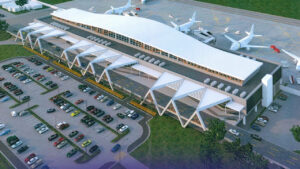Embracing digital transformation

In an era characterized by the omnipresence of technology, which has transcended its role as a mere tool to become a driving force of unprecedented change, the imperative for organizations to undergo digital transformation has become indisputable. This profound shift, instigated by the convergence of digital technologies, has not only revolutionized industries but also disrupted conventional business models and redefined the contours of competition. This transformation is particularly salient in Southeast Asia, where nations like the Philippines grapple with the multifaceted interplay of opportunities and challenges presented by the digital revolution.
Digital transformation entails more than a superficial overhaul of an organization’s technological infrastructure; it represents a comprehensive metamorphosis that permeates every facet of its operations, culture, and interactions with customers. At its essence, digital transformation empowers organizations to leverage the potential of technology to augment efficiency, agility, and innovation. This crucial imperative resonates across diverse sectors, encompassing fields ranging from manufacturing and finance to healthcare and retail. The fundamental objective is to ensure continued relevance and competitiveness within a swiftly evolving digital landscape.
In Southeast Asia, a region characterized by its diverse economies and cultures, the journey of digital transformation epitomizes a microcosm of the broader global narrative. Governments and enterprises within this region have come to recognize the transformative potency of technology, harnessing it as a driving force to foster growth, optimize services, and unlock novel prospects. The Philippines, an integral player within this dynamic landscape, serves as a compelling testament to the challenges encountered and victories achieved as it navigates through this epochal digital transformation.
NOT A LUXURY, BUT A NECESSITYIn the Philippines, the embrace of digital transformation extends beyond a strategic choice; it has emerged as an indispensable lifeline. The nation’s unique geographical landscape underscores the necessity for innovative solutions that bridge connectivity gaps and deliver essential services to remote areas.
The introduction of digital financial services, including mobile banking and e-wallets, has proven transformative for millions of previously unbanked Filipinos. These innovations have unlocked access to financial resources, transforming economic prospects in regions where traditional banking infrastructure remains constrained by geographical limitations. The adoption of mobile banking and electronic wallets underscores the empowering potential of digital transformation.
By facilitating financial transactions, these tools contribute to the progress towards Sustainable Development Goal 1 (No Poverty) and Sustainable Development Goal 8 (Decent Work and Economic Growth), ensuring that economic opportunities extend beyond urban centers to encompass even the most marginalized corners of the nation.
Moreover, the Philippines’ robust Business Process Outsourcing (BPO) industry, a longstanding linchpin of its economy, stands as a vanguard of the nation’s digital transformation. Utilizing AI-driven chatbots, robotic process automation (RPA), and advanced analytics, the industry enhances the capabilities of its Filipino workforce. This fusion of human expertise and technological innovation is not synonymous with job displacement; instead, it propels the workforce to engage with tasks that demand higher-order skills, such as creativity, empathy, and critical thinking. By recalibrating its service offerings for the digital age, the BPO sector not only solidifies its global position as a provider of value-added services but also embraces the shifting landscape of employment in the digital era.
The healthcare landscape in the Philippines has also undergone a remarkable shift, with digital innovation steering it towards a future characterized by inclusivity and accessibility. The rise of telemedicine platforms, bolstered by artificial intelligence and mobile connectivity, transcends geographical limitations, offering remote consultations and diagnostics in areas previously bereft of adequate medical services. This innovation, aligned with the ethos of Sustainable Development Goal 3 (Good Health and Well-being), epitomizes the commitment to leave no individual behind. Across the Philippines, individuals can now access medical guidance and services, irrespective of their geographical location.
Furthermore, the amalgamation of technology within healthcare augments data-driven decision-making, an essential component of Sustainable Development Goal 9 (Industry, Innovation, and Infrastructure). The digitalization of health records, data analytics, and AI-assisted diagnostics streamlines medical processes while concurrently enhancing the quality of care. By harnessing the capabilities of technology to improve healthcare delivery, the Philippines paves the way for other nations striving to achieve universal health coverage.
Education, a cornerstone of societal development, occupies a pivotal position in the Philippines’ digital transformation journey. The rapid transition to online learning catalyzed by the COVID-19 pandemic accelerated the integration of digital tools and platforms into the education ecosystem. This swift pivot heralded an era of accessible and personalized education. The fusion of education and technology, consonant with Sustainable Development Goal 4 (Quality Education), extends educational opportunities beyond the confines of physical classrooms. As a result, learning remains uninterrupted even in the face of adversity.
E-learning platforms, imbued with artificial intelligence and data analytics, cater to diverse learning styles, enabling students to engage with educational content at their own pace. Adaptive learning algorithms identify areas where students require support, facilitating targeted interventions and personalized learning experiences. Such an approach not only augments educational outcomes but also imparts students with the critical thinking and digital skills essential for navigating a world characterized by rapid evolution.
DELICATE BALANCE BETWEEN GROWTH AND SUSTAINABILITYAs the Philippines embarks upon its journey of digital transformation, it does so cognizant of the imperative to maintain a delicate equilibrium between growth and sustainability. The nation’s commitment to environmental stewardship finds expression in its pursuit of Sustainable Development Goal 7 (Affordable and Clean Energy) and Sustainable Development Goal 13 (Climate Action). The integration of renewable energy sources, such as solar and wind power, within the energy matrix underscores this dedication. Digital technology-enabled smart grids optimize energy distribution, curbing wastage and contributing to a more sustainable and resilient energy ecosystem.
Furthermore, the Philippines’ initiatives to digitize agriculture harmonize with Sustainable Development Goal 2 (Zero Hunger) and Sustainable Development Goal 15 (Life on Land). Precision agriculture, propelled by the Internet of Things (IoT) devices and data analytics, amplifies crop management efficiency, minimizes resource consumption, and advances responsible land use. This paradigm shift not only enhances food security but also mitigates the environmental footprint of agricultural practices, thus fostering a more balanced ecological landscape.
The Philippines’ odyssey of digital transformation serves as a testament to the nation’s ingenuity, resilience, and commitment to sustainable development. By harnessing the potential of technology to reshape industries, enhance social inclusivity, and promote environmental stewardship, the Philippines stands as an exemplar for nations navigating uncharted territories in the digital age.
As the nation charts its course, it exemplifies the essence of the Sustainable Development Goals — global aspirations that transcend geographical, cultural, and socioeconomic boundaries. Through the purpose-driven embrace of digital transformation, synchronized with these objectives, the Philippines articulates a roadmap for sustainable progress that other nations can heed.
In its pursuit of this trajectory, the Philippines showcases the essence of holistic progress — an approach that encompasses people, planet, and prosperity. Amidst this journey, the Philippines does not merely adapt to change; it crafts a narrative that underscores the boundless potential stemming from the synergy between human ingenuity and the capabilities of technology.
Ron F. Jabal, DBA, APR, is the chairman and CEO of PAGEONE Group (www.pageonegroup.ph) and founder of Advocacy Partners Asia (www.advocacy.ph).




